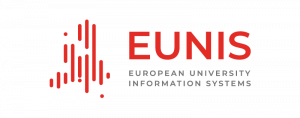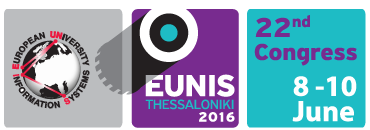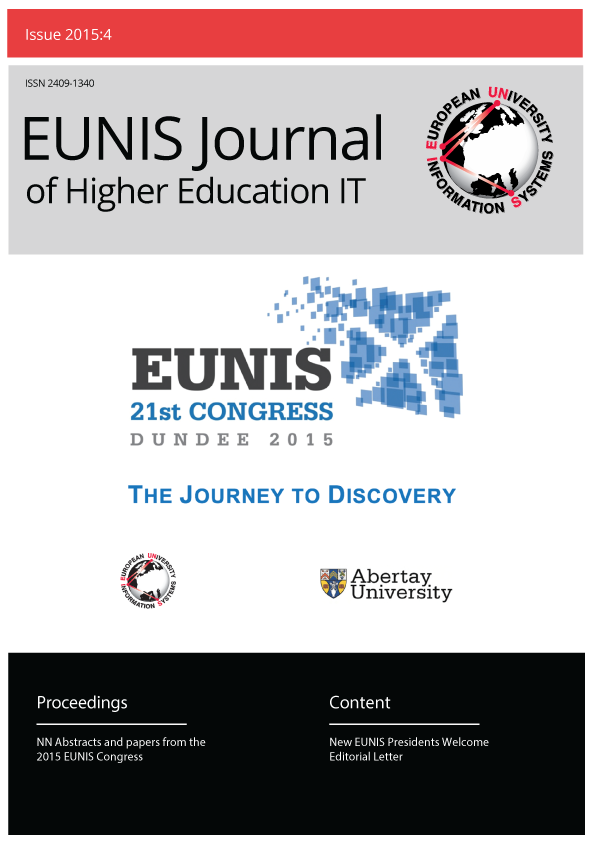Dear EUNIS Attendees, We are excited to invite you to join us at EUNIS 2016 taking place on June 8-10, 2016 in Thessaloniki, Greece. Location The Congress will be held at Aristotle […]
Category: Featured
EUNIS Journal of Higher Education IT – Issue 2015/3
Each year, when the annual congress has ended an issue of the Eunis Journal of higher education IT (EJHEIT) is assembled comprised by full papers coming from the congress submissions. […]
MOOCs again !
Still writing on MOOCs while, in a previous newsletter, I explained how the term disappeared in the United States? Am I waisting your time (and mine)? Try searching the Educause […]
Join the benchmarking on-line session: 22 Jan, 2016
Welcome to the launch of BM2016 EUNIS BencHEIT Task Force invites you to join the next round of benchmarking launch session on: Friday, 22nd January 2016, 2 pm UTC (duration approx. […]
Letter from the new EUNIS President
Dear EUNIS members and community, I hope you all had a great Christmas and a good start to the New Year. This letter serves two purposes, the first is to let […]





